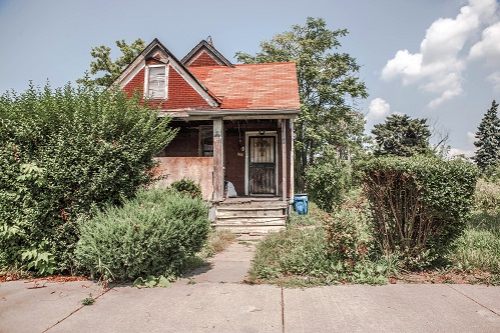- What does renters insurance cover?
- How does renters insurance cover water damage?
- Types of water damage that renters insurance covers
- Does renters insurance help pay for other lodgings if your apartment isn’t habitable?
- What water damage is the landlord’s responsibility?
- Renters insurance coverage limits for water damage
- How to make a renters insurance claim for water damage
- Does renters insurance cover flood damage?
- Frequently asked questions
What does renters insurance cover?
Renters insurance provides a wide range of coverages. It reimburses you for:
- Damages to your personal items. This aspect of coverage protects you from damages to or the theft of personal belongings that aren’t attached to or built into your rental home. For example, renters insurance protects furniture and clothing.
- Damages to others and their property. Renters insurance provides you with liability insurance. “If someone gets hurt or something gets damaged in your rented space, you might be held responsible,” Jacobs says. “Renters insurance helps pay for covered damage or injuries caused by an accident that occurs in your home.”
- The cost of living in a temporary location. Renters insurance can provide funds to cover temporary living expenses until you move back into your unit. “If your rented space gets damaged and you can’t live there, renters insurance could help pay for temporary housing or additional living expenses due to a covered loss,” Jacobs says.
However, renters insurance doesn’t cover the costs on a few things include:
- Damages to the physical residence you rent, including the roof and siding
- Some types of water damages
- Damages from movement of the earth, including earthquakes and landslides
How does renters insurance cover water damage?
Renters insurance pays for some types of water-related damages to your personal belongings.
Jacobs says renters insurance will likely cover water sources that could damage your personal property, including:
- Toilet overflows
- Refrigerator water supply line rupture
- Dishwasher line failure
- Frozen pipes
However, other types of water-related damages that aren’t covered, including:
- Damages arising out of slow water leaks or lack of maintenance
- Damages from water backup (backed up sewers or drains, sump pump overflows)
- Flooding-related damages
Fortunately, you may be able to cover these events through policy endorsements to your renters policy or a separate flood insurance policy. However, that will increase your insurance costs.
Types of water damage that renters insurance covers
A renters insurance policy covers you in some situations when water damages your belongings. For example, renters policy may cover belongings damaged by the following types of water events:
- A leaking or burst pipe
- A leaking toilet
- A leaking ceiling
- A leaking air conditioning unit
- A leaking water heater
- A washing machine that breaks down, causing water to rush into the apartment
- Malfunctioning fire sprinklers
- Some damages to others’ property, such as if a leak in your apartment damages something in the apartment beneath yours
On the other hand, renters insurance won’t cover you if water damage results from:
- Flooding. It is a commonly asked question: Does renters insurance cover floods? No. If a nearby river rises above its banks and floods your apartment, renters insurance won’t reimburse you for the damages. Instead, you need a flood insurance policy.
- Sewer backup. You might be able to purchase sump pump failure and water backup damage protection as a separate add-on to your renters policy, but that’s not usually standard.
Does renters insurance help pay for other lodgings if your apartment isn’t habitable?
A renters policy typically includes loss-of-use coverage. This coverage helps reimburse your expenses if your rental unit is damaged and becomes inhabitable for a short period while repairs are being made.
Loss-of-use coverage on a renters policy typically is calculated in one of two ways:
- A percentage of your overall coverage level -- for example, 40% of $100,000 in coverage.
- A flat amount, often just $3,000 to $5,000 of coverage.
It’s vital to know how much loss of use coverage your policy offers and to make sure it’s adequate for your coverage needs should you have to vacate your rental unit for an extended period.
What water damage is the landlord’s responsibility?
A landlord’s insurance policy covers water damages related to the physical structure you rent, whether a home or an apartment.
The landlord isn’t responsible for insuring your personal belongings. Landlord insurance also doesn’t provide you with liability coverage.
If you want such coverage, you need to purchase your own renters insurance policy.
Renters insurance coverage limits for water damage
Even if your insurance covers water-related damages to your property, you’re only covered up to the limits of your policy. The policy’s limit is the maximum dollar amount your insurance covers. The higher the limit, the more you pay.
In addition, coverage won’t kick in until you pay your deductible. Choosing a higher deductible can lower your premium costs, but it leaves you on the hook for paying out of pocket for a larger share of the cost to repair or replace your items.
For instance, if your possessions suffer $1,000 worth of damage and your deductible is $500, your insurance company would reimburse you $500 and you would pick up the rest of the tab.
How to make a renters insurance claim for water damage
Before filing a claim, make sure your policy will cover the damages. For example, if a pipe bursts and destroys expensive, antique books, chances are good that you can file a renters insurance claim and be reimbursed for the damages up to your policy list.
However, if a flooding river rushes through your rental unit and ruins the same books, the damage won’t be covered unless you purchased flood insurance, which is a separate policy.
The procedure for filing a renters insurance claim may differ slightly by insurer, and it’s important to follow your insurance company’s rules closely. However, as a general rule, you should:
- Report the incident to authorities and others, such as the police and your landlord
- Either file a claim online at the insurance company’s website or call your insurer to file the claim
- Ask your insurance company about whether to repair or replace damaged items right away
- Take photographs of the damage
- Save receipts if you make repairs or purchase a replacement item
An insurance adjuster will review your claim and may even visit your residence to review the damage. The insurance company will decide whether to approve your claim and how much it will pay you.
Does renters insurance cover flood damage?
No, a renters insurance policy doesn’t reimburse you for damages associated with floods. To obtain flood coverage, you need to buy a separate flood damage policy.
You can usually get up to $100,000 for belongings such as furniture, electronics and clothing in flood insurance coverage.
If you don’t have a flood policy and flooding damages your belongings, you’re on the hook to pay for repairs to or replacement of damaged belongings.
Frequently asked questions
Does renters insurance cover water damage from a toilet?
In some situations, renters insurance covers damage caused by an overflowing or leaking toilet. This is most likely if the leak or overflow is sudden and isn’t related to something you have done as a tenant.
However, if you allow a toilet to clog and don’t immediately address the problem -- thus allowing it to overflow -- it’s likely that resulting damages won’t be covered.
This is something of a gray area for insurance coverage, so it’s important that you contact your insurer to find out in advance what would and would not be covered in such a situation.
Does renters insurance cover water damage from ceiling leaks?
Yes, renters insurance typically covers any damage to your personal possessions resulting from a ceiling leak. However, remember that damages to the structure of your rental unit itself would be covered by the landlord’s property insurance policy, not your renters insurance.
Does renters insurance’s liability coverage help with water damage?
You can be held responsible if someone gets hurt in your rental space or there is damage to property of others where you live. That’s true no matter the cause of the damage, including water.
Fortunately, insurance can protect you in such situations.
“Renters insurance offers liability coverage to help pay for covered damage, bodily injury and medical payments to others caused by an accident that occurs in your home,” Jacobs says.




